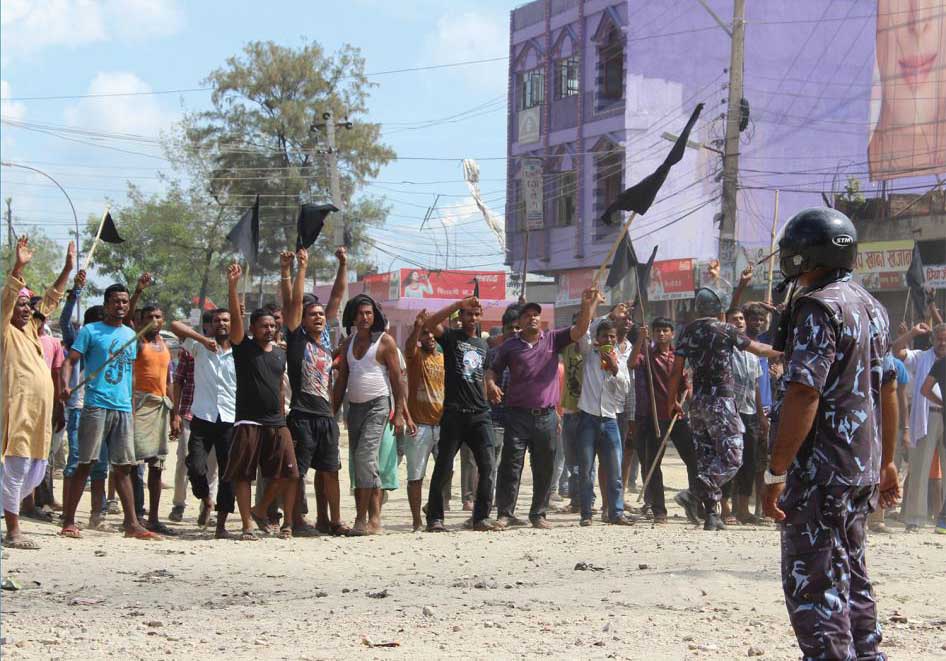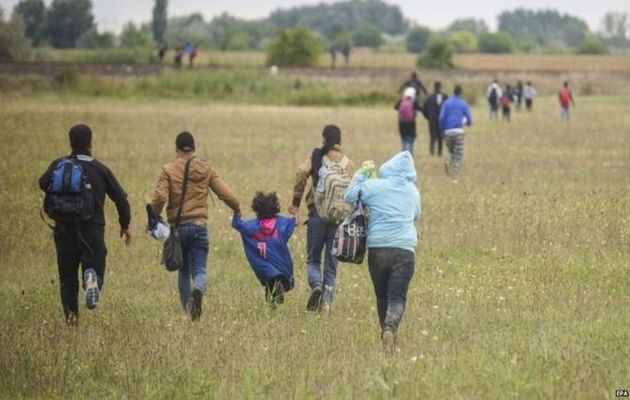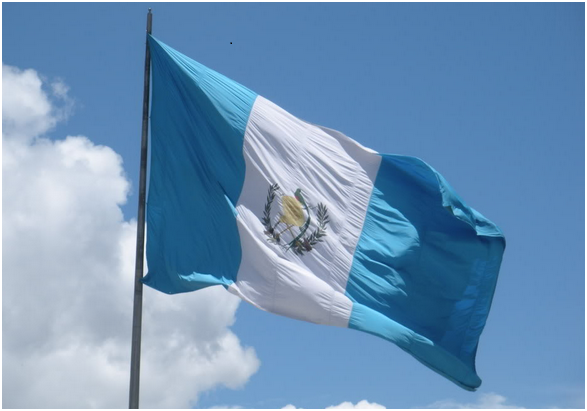
Nov 24, 2015 | News
The government and all political parties, along with the country’s neighbors and international supporters, must act immediately to end the increasingly violent political crisis in the southern Terai region said the ICJ today.
The associated border blockade that has imposed severe shortages of necessary commodities throughout the country must also be ended, the ICJ added.
Over the weekend, three individuals were killed and at least another 28 individuals, including 15 police officers, were injured during clashes following an apparent impasse in talks among political parties trying to end the crisis over the newly adopted Constitution.
“Nepali authorities should promptly investigate and bring to justice the perpetrators – be they security forces or protesters – of any unlawful killings and other acts of violence committed during the ongoing protests in the Terai, and ensure that security forces refrain from the use of excessive force against civilians,” said Sam Zarifi, ICJ’s Asia-Pacific Director.
“At the same time, the Nepal government must address the severe shortage of commodities and the impact it has had on economic and social rights by prioritizing the most urgent needs while working to resolve the constitutional crisis,” he added.
The border blockade initiated nearly three months ago has had a deeply detrimental impact on the economic and social rights of the population countrywide, including the rights to food, water and sanitation, health and adequate housing, by causing severe shortages of essential commodities such as fuel, cooking gas and medical supplies throughout the country.
Madhesi groups have been demonstrating against Nepal’s new Constitution in the Terai since August 2015, protesting discriminatory aspects of the new Constitution that they argue would entrench marginalization, and have been staging a de facto blockade at the main border posts along the Nepal-India border since the Constitution was adopted on 20 September 2015.
India has been accused of imposing or collaborating in the blockade, an allegation which the Indian government has denied.
The ICJ has previously highlighted the lack of proper consultation in the drafting and adoption of the Constitution as well as the substantive human rights defects in its text, particularly the discriminatory provisions on the rights of women and some ethnic groups.
More than 45 persons, including 8 police personnel, have been killed during violent confrontations that have erupted between protesters and security forces since the demonstrations began, with allegations of excessive use of force by Nepali security forces as well as violent attacks by protesters against police personnel.
One Indian national was apparently killed by Nepali security forces at the Birgunj border last month.
“The Nepal government has a responsibility to protect the rights and security of its people and to re-establish the rule of law in the Terai,” said Zarifi. “However, Nepal must at all times respect the people’s right to peaceful protest and free assembly, and ensure that security forces exercise maximum restraint when responding to the demonstrations.”
The ICJ emphasizes that India and Nepal have an obligation to protect the human rights, including the economic and social rights, of persons impacted by their acts or the actions of those under their jurisdiction, and accordingly have an obligation to remove obstacles to the enjoyment of those rights.
“Nepal has an obligation to ensure that all available resources at their disposal have been mobilized to alleviate the human rights and humanitarian impact of the border blockade on the most vulnerable sections of the population,” Zarifi added. “The Nepal government must provide a clear plan to assess and address the impact of the blockade by prioritizing available supplies to the most urgently needed areas throughout the country, not just in Kathmandu.”
“The impact of the blockade is all the more acute because the country is still reeling from the 25th April earthquake and its ongoing aftershocks,” Zarifi said. “The international community, particularly neighboring India, should do all it can to ensure that urgent humanitarian assistance gets to the Nepali people.”
Contact
Nikhil Narayan, ICJ Senior Legal Adviser for South Asia, t: +977 9813187821 ; e: nikhil.narayan(a)icj.org
Photo credit: HRW

Nov 19, 2015 | News
Bangladesh President Abdul Hamid should stay the imminent executions of Salahuddin Quader Chowdhury and Ali Ahsan Mohammad Mujahid, the ICJ said today.
Salahuddin Quader Chowdhury, a leader of the opposition Bangladesh Nationalist Party, and Ali Ahsan Mohammad Mujahid, a leader of the Jamaat-e-Islami party, were found guilty of crimes committed during the 1971 war for independence in Bangladesh by the International Crimes Tribunal (ICT) in October 2013.
On 18 November 2015, the Supreme Court rejected their review petitions challenging their death sentences.
The only legal option available to them now is to seek a pardon from the President.
“The ICJ expresses its solidarity with the victims and survivors of the human rights violations committed during the 1971 war, and believes the perpetrators of these atrocities must be brought to justice,” said Sam Zarifi, ICJ Asia Pacific Regional Director. “However, the death penalty, especially following a deeply flawed trial, amounts to nothing more than vengeance and does not serve the interests of justice.”
The ICJ has previously raised concerns that trials before the ICT do not comply with international standards for fair trials.
Following the two previous executions in Bangladesh resulting from convictions by the ICT to date (Muhammad Kamaruzzaman in April 2015 and Abdul Qader Mollah in December 2013), the ICJ raised concerns about the serious procedural flaws in the ICT at all stages: pre-trial release has been routinely and arbitrarily denied; witnesses have been abducted and intimidated; and there have been credible allegations of collusion between the Government, prosecutors and judges.
UN agencies have also raised fair trial concerns with respect to how certain cases have been heard at the ICT.
Concerns have been raised with respect to Salahuddin Quader Chowdhury and Ali Ahsan Mohammad Mujahid’s trials as well.
“There have been several problems about the fairness of the trials under the ICT,” Zarifi added.
“Instead of compounding injustice by executing people who have been found guilty through flawed trials, the Government of Bangladesh should commute these death sentences and abolish the death penalty.”
The ICJ opposes capital punishment in all cases without exception.
The death penalty constitutes a violation of the right to life and the right not to be subjected to cruel, inhuman or degrading punishment.
Contact:
Sam Zarifi, ICJ Asia Pacific Regional Director (Bangkok), t: +66 807819002; email: sam.zarifi(a)icj.org
Background:
Ali Ahsan Mohammad Mojaheed was convicted by the International Criminal Tribunal and sentenced to death in July 2013. The Supreme Court upheld the conviction and sentence in June 2015.
Salahuddin Quader Chowdhury was found guilty and sentenced to death in October 2013 for war crimes, including genocide. The Supreme Court on appeal upheld the decision in July 2015.
The ICJ calls on Bangladesh to impose an official moratorium on the death penalty, with a view to abolishing the death penalty outright.
In December 2014, the UN General Assembly adopted a resolution, for the fifth time since 2007, emphasizing that the use of the death penalty undermines human dignity and calling on those countries that maintain the death penalty to establish a moratorium on its use with a view towards its abolition.
117 UN Member States, a clear majority, voted in favor of a worldwide moratorium on executions as a step towards abolition of the death penalty.

Nov 18, 2015 | Events, News
The ICJ, OSCE and Group 484 are holding a training on migration and international human rights law starting on Tuesday 17 November in Vrnjačka Banja (Serbia).
The training has been organised by the Organisation for Security and Cooperation in Europe (OSCE) and the Serbian NGO “Group 484” and will be given by the International Commission of Jurists.
It will focus on international protection of migrants and asylum seekers, access to territory and asylum and the principle of non-refoulement, in light of the current migrants and refugee crisis and drawing from the jurisprudence of the European Court of Human Rights, of the UN human rights systems and from EU law.
The training will be centred on the ICJ Practitioners Guide no. 6: Migration and International Human Rights Law.
Serbia-JointTrainingMigrationHR-Events-2015-ENG (download the agenda in English)

Nov 17, 2015 | News
Desde el año 2004, la CIJ ha señalado casos en los que el Estado de Guatemala dirige su poder punitivo en contra de defensores y defensoras de derechos humanos por su asociacion a actos pacíficos en defensa de los recursos naturales de distintas comunidades en el país.
Ante esta práctica, que socava el derecho a defender los derechos humanos, la CIJ expresa:
1. La criminalización de la protesta social se ha convertido en un fenómeno recurrente en Guatemala, en la que el Derecho Penal es utilizado como instrumento de represión y deslegitimación de la labor que las y los defensores de derechos humanos llevan a cabo en el país.
2. Especial preocupación causan las detenciones arbitrarias de las que son objeto defensores y defensoras de derechos humanos, que trabajan en áreas de alta conflictividad social y se vinculan a la protección de los recursos naturales, territorios o derechos de los Pueblos Indígenas. En algunos casos, el Estado de Guatemala ha optado por la suspensión de las garantías constitucionales en esas regiones, decretando estados de prevención o de sitio.
3. Con el objeto de conocer el impacto de esta práctica, la eurodiputada Marina Albiol, visitó Guatemala del 2 al 5 de noviembre del presente año. En dicha ocasión, la CIJ acompañó a su delegación en una visita in situ a los departamentos de Huehuetenango y San Marcos, para entrevistarse con defensores y defensoras de Derechos Humanos, así como para sostener reuniones con funcionarios de gobierno y movimientos sociales.
4. La delegación constató que frecuentemente las y los líderes comunitarios y defensores de derechos humanos, son sometidos a procesos penales injustos, práctica que consituye una herramienta para el acoso a dichas personas.
5. La delegación pudo constatar el caso de las detenciones arbitrarias de Ermitaño Bernardo López , Rigoberto Juárez y Domingo Baltazar, Francisco Pedro (Chico Palas), Adalberto Villatoro (Don Tello), Arturo Pablo Juan,Saúl Méndez y Rogelio Velásquez, todos ellos del Departamento de Huehuetenango; en los dos últimos casos mencionados, se ha dictado sentencia absolutoria, pero ambos continúan detenidos. Todos han padecido su privación de libertad , en la cárcel de Huehuetenango o en la prisión de la zona 18 de Guatemala, bajo condiciones extremadamente difíciles. Los anteriores no son los únicos, ya que junto a ellos se encuentran detenidas arbitrariamente otras defensoras y defensores de derechos humanos del departamento de Huehuetenango y de otros departamentos.
6. Asímismo preocupa la detención de Mauro Vay, dirigente y defensor de derechos humanos de la organización CODECA, quien se encuentra bajo medida sustitutiva, pero con restricciones que han afectado su derecho al trabajo y libertad de movimiento, durante todo el año 2015 en el departamento de Suchitepéquez.
7. La Comisión Interamericana de Derechos Humanos ha expresado que la protesta social pacífica, es una herramienta fundamental para la labor de defensa de los derechos humanos, esencial para la crítica política y social de los gobiernos. En tal sentido, los Estados están obligados a asegurar que ningún defensor o defensora de los derechos humanos sea impedido de reunirse y manifestarse públicamente en forma pacífica.
Ante estos hechos, Wilder Tayler, Secretario General de la CIJ expresó: “Urgimos a las autoridades del Estado de Guatemala a detener la criminalización de la protesta social y las detenciones arbitrarias que este fenómeno conlleva. Amendrentar y obstaculizar la labor de defensoras y defensores de derechos humanos constituye de por sí, una violación del derecho de las garantías individuales”.

Nov 17, 2015 | News
La CIJ demanda a las autoridades guatemaltecas terminar con la impunidad que rodea el caso Siekavizza.
La CIJ ante la impunidad prevaleciente en el caso Siekavizza expresa:
El llamado “caso Siekavizza” constituye un caso paradigmático de femicidio supuestamente cometido por el esposo de la víctima Cristina Siekavizza, el 16 de julio de 2011. El cuerpo de la víctima no ha aparecido hasta ahora.
- Por las circunstancias que rodean este caso la CIJ ha solicitado reiteradamente que éste sea conocido por la Comisión Internacional contra la Impunidad en Guatemala (CICIG); no solo porque el principal sospechoso es hijo de una ex Presidenta de la Corte Suprema de Justicia, sino porque existen elementos suficientes para considerar que puede haber existido una conjura criminal para mantener el caso en la impunidad.
- Desde que se dieron los hechos tan deplorables, el Sistema de Justicia de Guatemala mostró ineficiencia y falta de voluntad política para esclarecer los hechos y llevar ante la justicia al o a los supuestos responsables. Las autoridades estatales no adoptaron las medidas necesarias para llevar a cabo una investigación eficiente y rápida.
- Lo anterior permitió que se afectara la escena del crimen y que el presunto responsable se refugiara en otro país y escapara a la justicia.
- Los cuatro años de impunidad que lleva el caso, han provocado un profundo pesar a los familiares de Cristina Siekavizza a quienes en su momento, el Estado deberá resarcir los daños causados.
- Este es tan solo uno de los miles de casos criminales que se mantienen en la impunidad frente a la pasividad de las autoridades correspondientes. En general la justicia en Guatemala sigue seriamente afectada por altos índices de impunidad.
Wilder Tayler, Secretario General de la Comisión Internacional de Juristas con sede en Ginebra, Suiza expresó: “Seguiremos observando el desarrollo de este caso; hacemos un enérgico llamado a todos los operadores de justicia involucrados, para que pongan el más riguroso empeño para permitir esclarecer un crimen tan grave. La impunidad que rodea el caso debe superarse cuanto antes.”

Nov 16, 2015 | News
The International Commission of Jurists (ICJ) deplores the devastating criminal attacks carried out in Paris on 13 November, leading to the loss of at least 129 lives and many serious injuries. The ICJ extends its condolences to the victims and their families.
The attacks were calculated to cause the greatest possible arbitrary destruction of lives and of human rights.
Those responsible for these heinous crimes must now be investigated and brought to justice, in a manner that ensures strict compliance with human rights and the rule of law.










